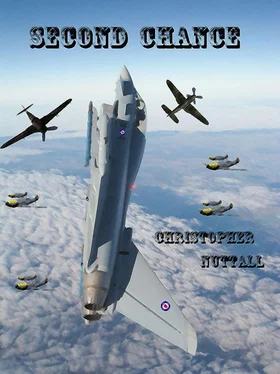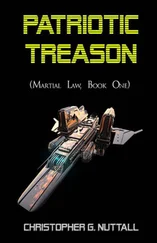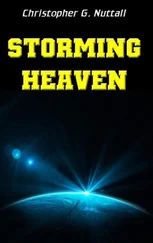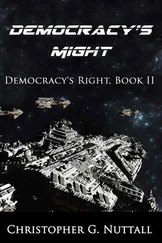It is curious to note that Stalin never declared war on Britain, despite the clear state of war. Stalin never really understood the forces driving the 2015 Britain, nor that they had no desire to bargain with him, as they were aware of his future broken promises. Despite his alliance with Nazi Germany, nemesis was on the cards…
Japanese Responses to the Transition, 1940
Of the three major Axis powers, the Japanese were in the worst position, although they were never able – with the exception of Admiral Yamamoto and some of his clique – to appreciate the sheer nightmarish position they faced. Their limited recourses, limited materials and a vast overconfidence only served to harm the Japanese position further. Of what seemed like impressive victories in the Pacific, only one of them – the conquest of the Dutch East Indies (Indonesia) – was strategic in its nature.
Politically, the Japanese faced a seriously difficult choice. Their position was very dangerous; they dared not show weakness in the Far East for fear of tempting Stalin, while they needed to end the China War and they were dependent on imports from the British and Dutch possessions in the Pacific. (Indeed, the Japanese planned an invasion of the British possessions that would have been launched along with Sealion.) In effect, as the American position hardened when the news of the future became public, the Japanese discovered that they had three choices.
Withdraw from China and effectively demilitarise, although there would be some room for negotiation. This would have the effect of weakening Japan, and of course there was no guarantee that the Americans wouldn’t simply insist on something else, now that they had discovered that blackmail worked. The Japanese might have been willing to step down operations in China – which would have had some support from the Army – but they would not, could not, surrender.
Use their military power to threaten the Dutch and British into trading with them anyway, regardless of the American position. While this was supported by some elements of the Navy, this had the problem – as North Africa had revealed – that the 2015 Britain was so powerful that failing to hold a vast area of the Pacific would only make their doom come quicker. In effect, the blackmail would have only been good for a year at most – and then the British would slap them down.
War. Snatch the British and Dutch territories that would serve as bases for any counterattack, and just incidentally were rich in the resources that Japan needed, and make a counterattack impossible. Like Option 2, it was one that had to be used quickly , before the British position became invincible.
Japanese politics became a great deal more violent as the effects of the Transition rolled on. (The biological attack on China and the occupation of French Indochina took place at this point.) Eventually, the Militarists gained dominance, largely because powerful elements within the Navy and the Bureaucracy might have been willing to negotiate, they wanted something in return; mainly occupation of the Dutch East Indies to prevent later American/British ‘renegotiation’ of the agreement. The Americans were unwilling to compromise for domestic political reasons.
At this point, war became inevitable. The Japanese prepared for war with thoroughness and determination, as well as doing what they could to offset the British technical advances. The eleven free divisions of the army were prepared for their missions, which included the seizing of Singapore and the occupation of the Dutch East Indies. While some elements wanted to include the Americans in the target list, they were shouted down; America in the war would guarantee their defeat. One solution would later become a problem; aware that their radio transmissions would be intercepted with ease, the Japanese gave considerable authority to their local commanders. This would come back to haunt them later.
The Japanese attempted to produce biological weapons and atomic weapons, as well as expanding their gas production. In biological weapons, they were partly successful, weakening Chinese resistance with various diseases that killed thousands of Chinese, before spreading west and south. Although strict sanitation was enforced on the Japanese – and ironically duplicated by the Chinese Communists – some unpleasant diseases spread to the Japanese soldiers, mainly through the Chinese women who had been forced to serve as sex slaves.
Despite heroic attempts, the Japanese attempt to produce a nuclear warhead was doomed to failure from the start. Japan understood some of the theory behind atomic science, but lacked the resources to test them, as well as the equipment to build the systems they would need to create a reactor, let along build and deploy a bomb. While the Germans provided them with considerable theoretical data, they were unwilling to risk shipping the equipment – what little the Germans themselves had – through the guarded North Sea, or over Russia.
If that problem wasn’t bad enough, there was a major disagreement between the Army and Navy over the project and its goals. While both sides now knew that a bomb was possible, they disagreed over both the ultimate use of the bomb, the politics involved (the Navy believed that the British would respond with overwhelming power and the Army believed that they would hold off) and of the other purposes of atomic power. In effect, what small chance the Japanese had to develop a bomb was sunk by the disagreement between the two services – which kept some of the best atomic scientists in Japan from working together.
The best that could be said of the Japanese war effort is that they went bravely to a defeat that only the most fanatical believed to be avoidable. Although the Japanese were used to limited logistics, and were striking against weak garrisons for the main part, they were not able to defeat the crack troops involved in Singapore, nor were they able to overrun the Dutch East Indies as fast as they had expected. The only major sea battle of 1940, the Battle of the Indian Ocean, was a near-complete defeat; ironically, the only thing that saved the remains of the fleet that had engaged the British ships was a mutual reluctance to press the battle to the limit. The Japanese inability to regard their own position dispassionately – and to recognise the real strength of their foe – made it impossible for the Japanese to adapt before all hell broke loose.












